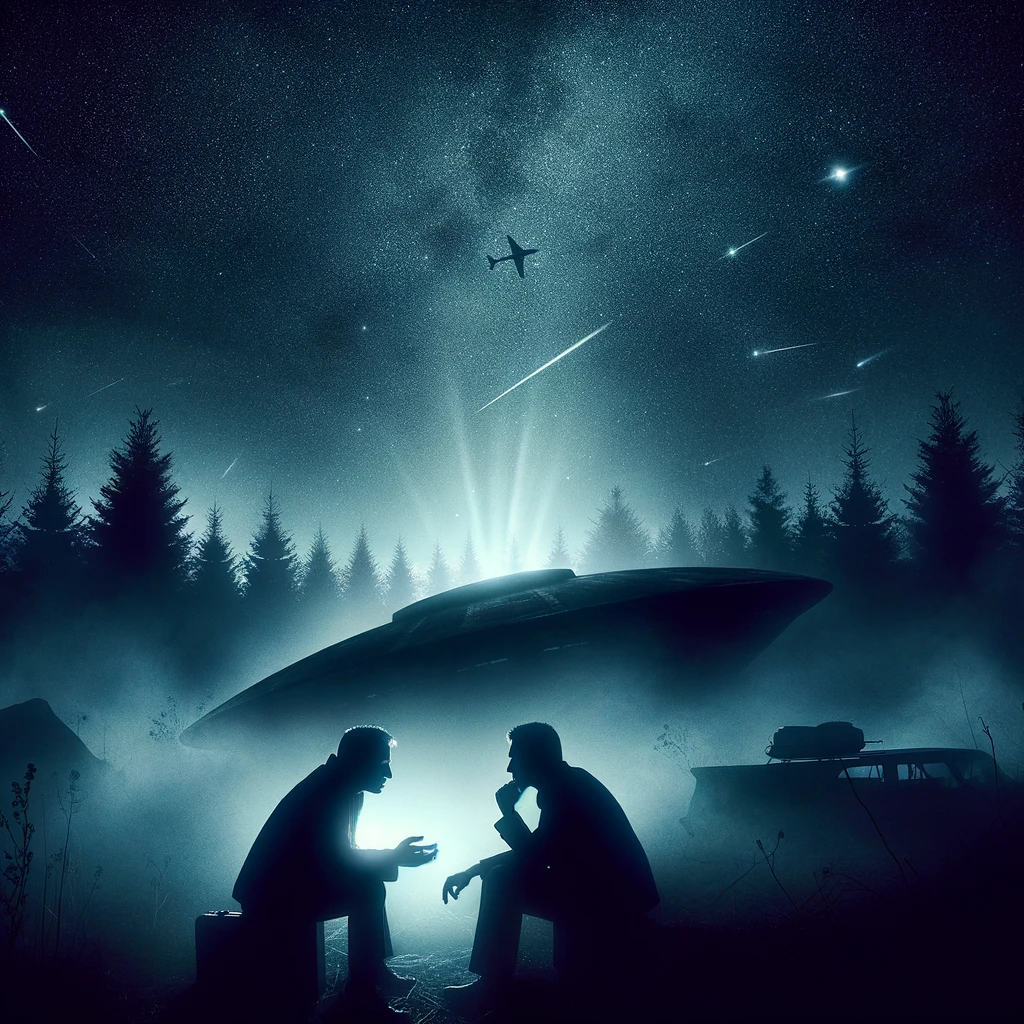Reality Check with Ross Coulthart and Daniel Sheehan

On March 11, 2024, NewsNation launched its inaugural episode of “Reality Check,” hosted by Ross Coulthart and featuring Daniel Sheehan, a prominent civil rights attorney. The program aims to look into significant issues, starting with a controversial topic: Unidentified Anomalous Phenomena (UAPs). Coulthart criticized the recent U.S. Congress report on UAPs as misleading and inadequate, calling it a disservice to the truth about national security matters. Coulthart, an Australian investigative journalist and former lawyer, expressed his dedication to protecting the rights enshrined in the U.S. Constitution and his concern over potential government deception regarding UAPs.
The episode highlighted an exclusive story Coulthart had previously covered for NewsNation about David Grusch, a former intelligence officer, who claimed that humanity is not alone and that the U.S. government has engaged in crash retrievals of non-human technology. This assertion was supported by Coulthart’s and Sheehan’s discussions on historical instances where individuals within the government or associated with official investigations, like Project Blue Book, allegedly had access to or were informed about evidence of non-human technology and UAP crash retrievals.
Sheehan shared his own experiences from the 1970s when he was granted access to classified portions of Project Blue Book files, which allegedly contained photographs of a crashed UAP. Despite providing this firsthand evidence to the Pentagon’s All-Domain Anomaly Resolution Office (AARO), led by Dr. Sean Kirkpatrick, Sheehan claims that AARO’s recent report to Congress blatantly denied such evidence, which he views as a deceitful act against the American public and a violation of executive orders prohibiting intelligence agencies from influencing public opinion.
Daniel Sheehan recounted an extraordinary experience from 1977 when he was granted unprecedented access to classified Project Blue Book files, which are part of the United States Air Force’s investigation into UFOs. Within these files, Sheehan discovered a series of photographs depicting a crashed flying saucer embedded in a snowy embankment, surrounded by Air Force personnel. Intrigued by a series of unique, unidentified symbols around the saucer’s dome, Sheehan took the initiative to trace these symbols accurately onto a yellow pad, ensuring he captured their exact sequence and design. This meticulous transcription provided him with a tangible record of what he perceived as undeniable evidence of non-human technology.
The significant implications of Executive Order 12333, a directive issued during President Reagan’s administration, plays a critical role in the context of the UAP disclosure debate. This executive order explicitly prohibits members of the intelligence community from engaging in covert operations aimed at influencing the American public, including media manipulation or shaping public opinion. Sheehan accused Dr. Sean Kirkpatrick, an officer associated with the Pentagon’s All-Domain Anomaly Resolution Office (AARO), of violating this executive order by allegedly presenting misleading information to Congress regarding UAPs and crash retrieval programs. According to Sheehan, this act not only represents a breach of the executive order but also underscores a deeper constitutional crisis, challenging the principles of separation of powers and governmental transparency. Sheehan’s assertion about the executive order violation calls for a serious examination of the oversight mechanisms in place for the intelligence community and the need for Congress to enforce stricter adherence to such directives to safeguard democratic principles and public trust.
Sheehan accused Dr. Kirkpatrick of lying to Congress and suggested that this represents a broader issue of the national security state’s power over constitutional governance. “Reality Check” positioned itself as a platform to challenge such narratives and support efforts like the New Paradigm Institute’s Citizens for Disclosure, which Sheehan is involved in, aiming to encourage congressional action and public awareness regarding UAP disclosures and government transparency.


